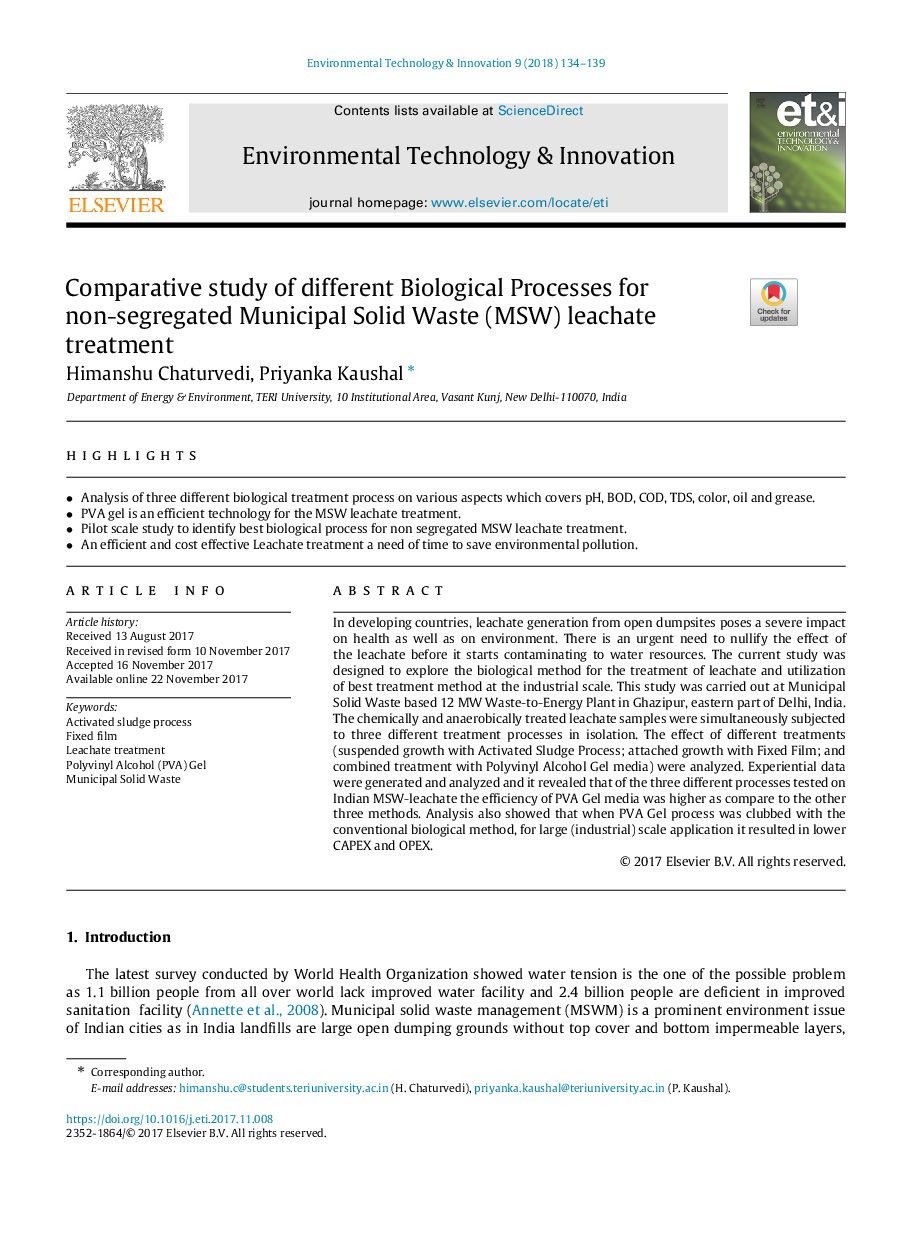| Article ID | Journal | Published Year | Pages | File Type |
|---|---|---|---|---|
| 8858057 | Environmental Technology & Innovation | 2018 | 6 Pages |
Abstract
In developing countries, leachate generation from open dumpsites poses a severe impact on health as well as on environment. There is an urgent need to nullify the effect of the leachate before it starts contaminating to water resources. The current study was designed to explore the biological method for the treatment of leachate and utilization of best treatment method at the industrial scale. This study was carried out at Municipal Solid Waste based 12 MW Waste-to-Energy Plant in Ghazipur, eastern part of Delhi, India. The chemically and anaerobically treated leachate samples were simultaneously subjected to three different treatment processes in isolation. The effect of different treatments (suspended growth with Activated Sludge Process; attached growth with Fixed Film; and combined treatment with Polyvinyl Alcohol Gel media) were analyzed. Experiential data were generated and analyzed and it revealed that of the three different processes tested on Indian MSW-leachate the efficiency of PVA Gel media was higher as compare to the other three methods. Analysis also showed that when PVA Gel process was clubbed with the conventional biological method, for large (industrial) scale application it resulted in lower CAPEX and OPEX.
Related Topics
Life Sciences
Environmental Science
Environmental Chemistry
Authors
Himanshu Chaturvedi, Priyanka Kaushal,
